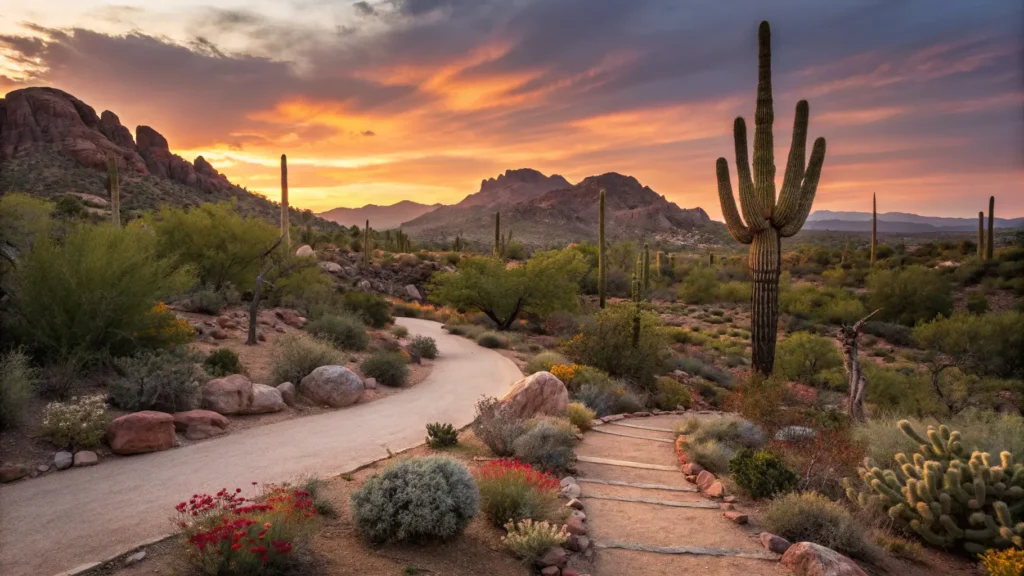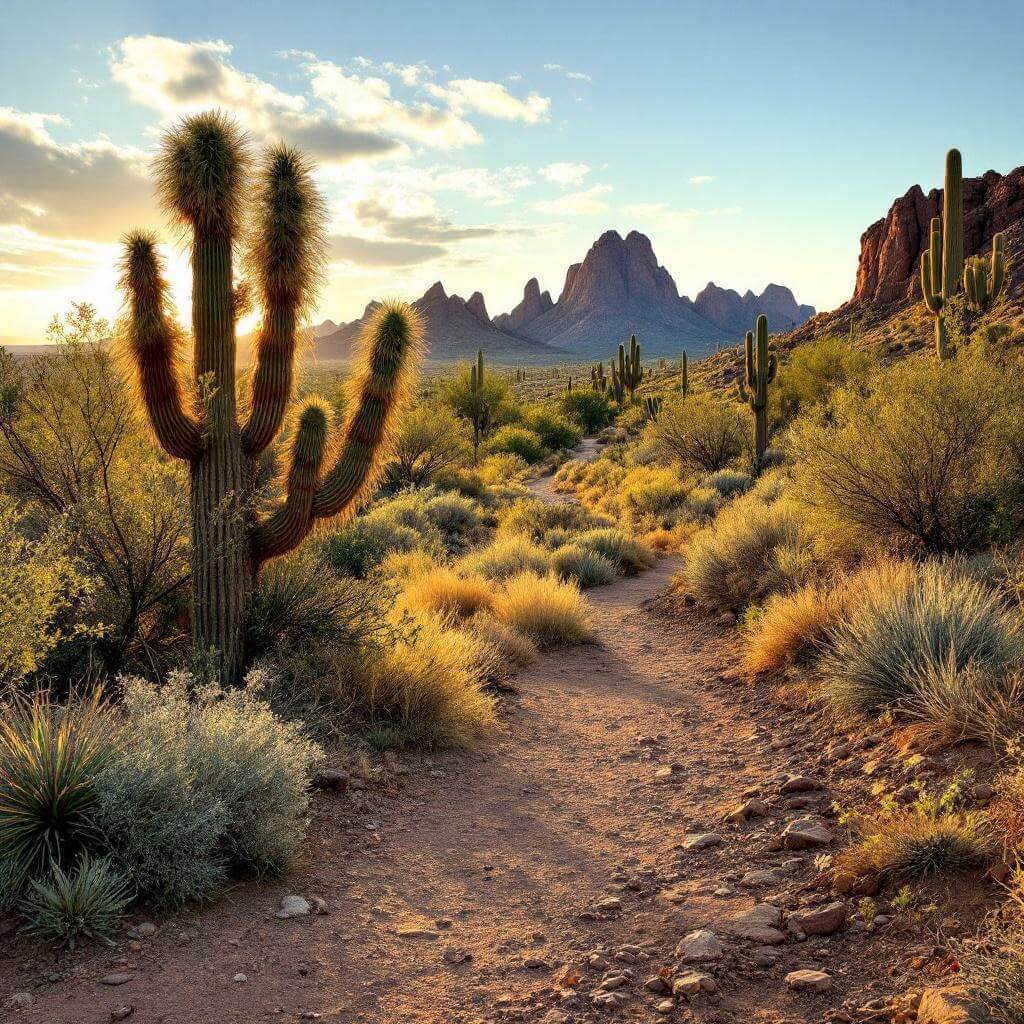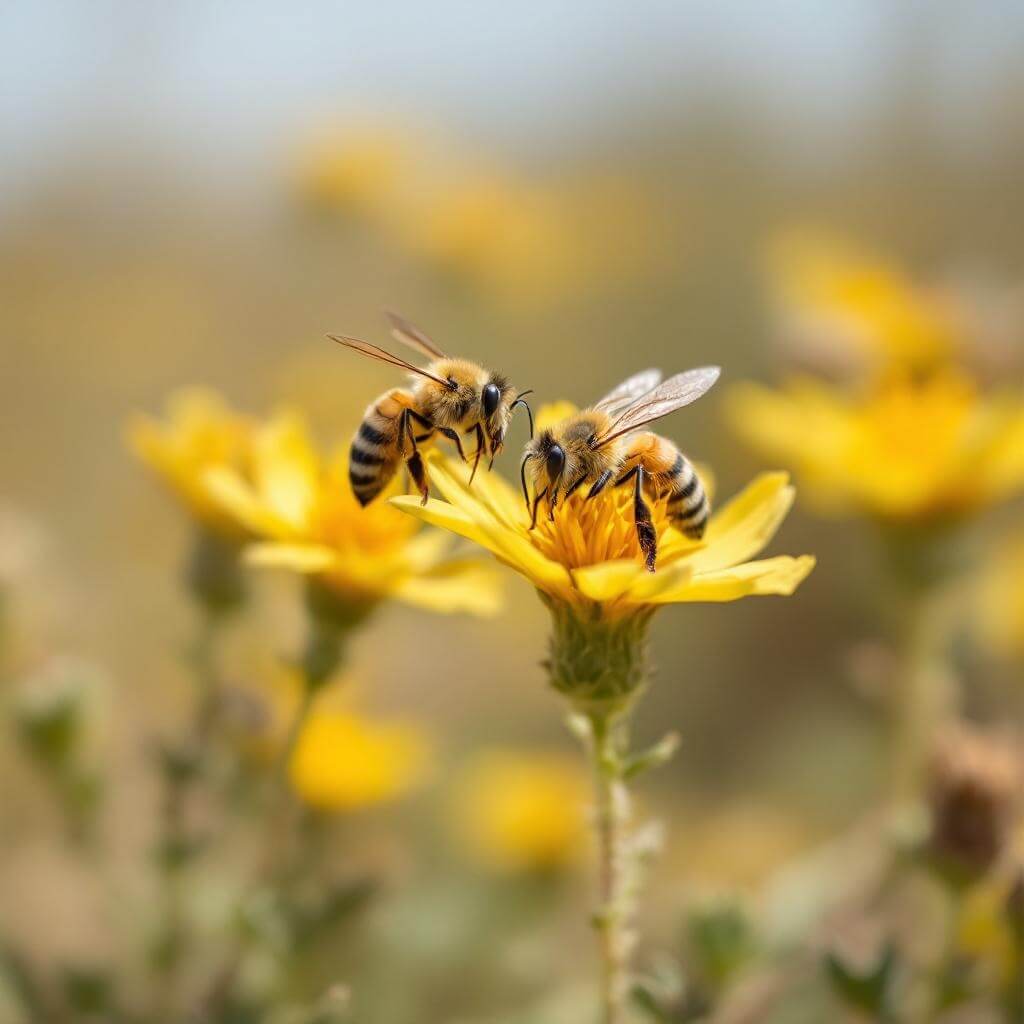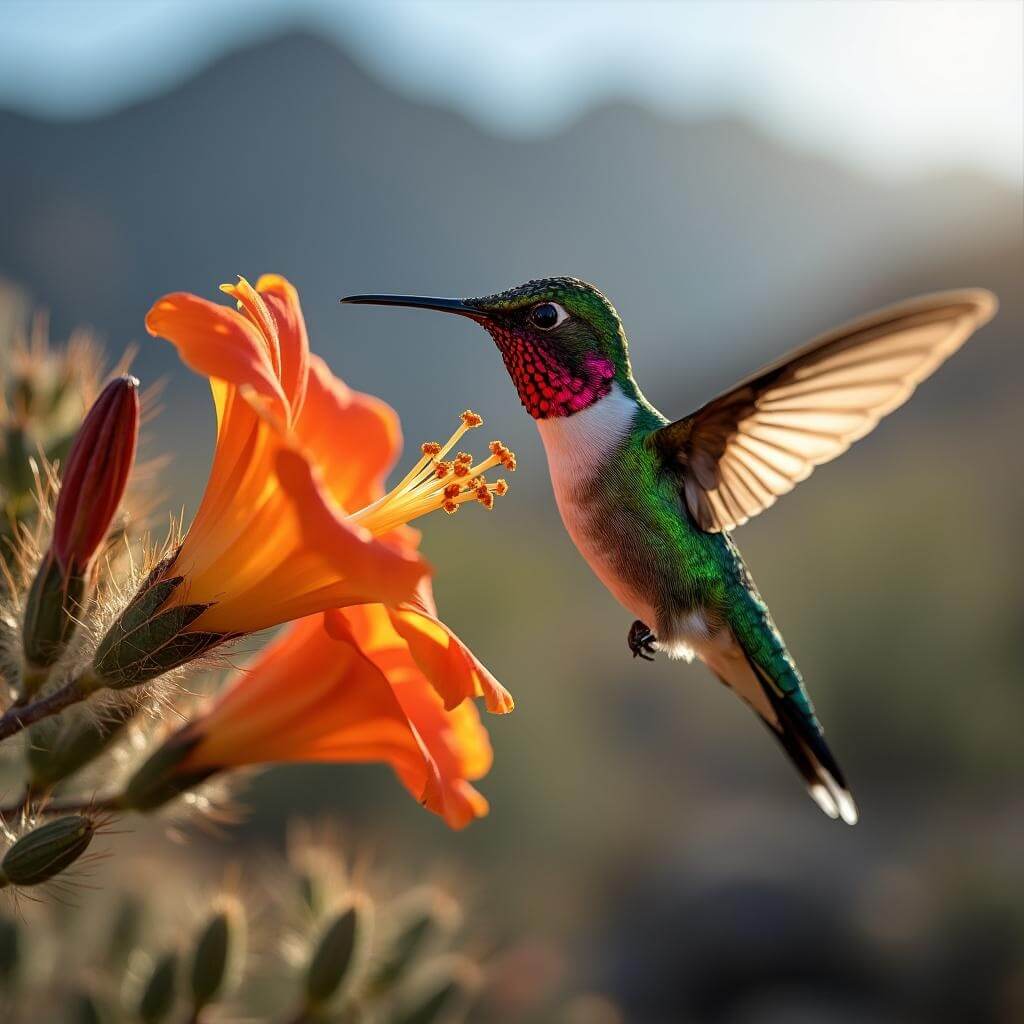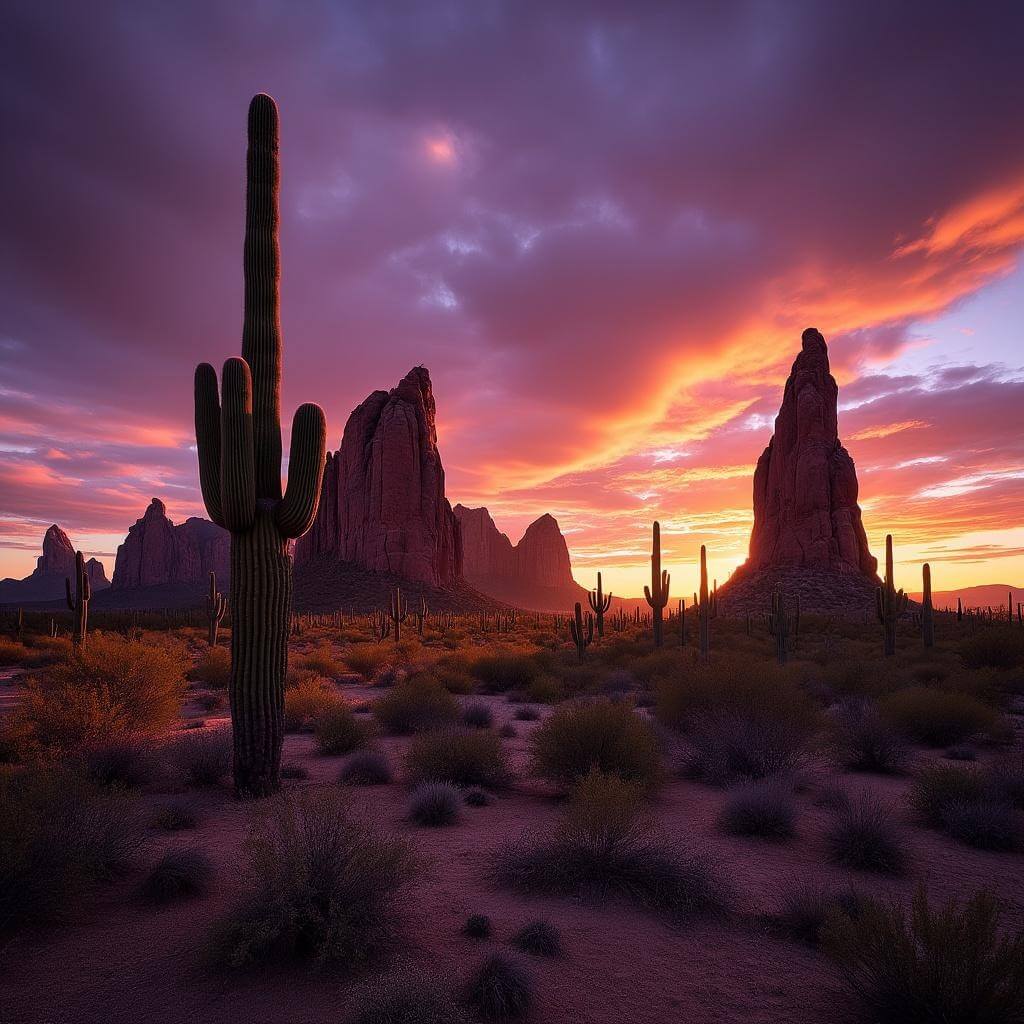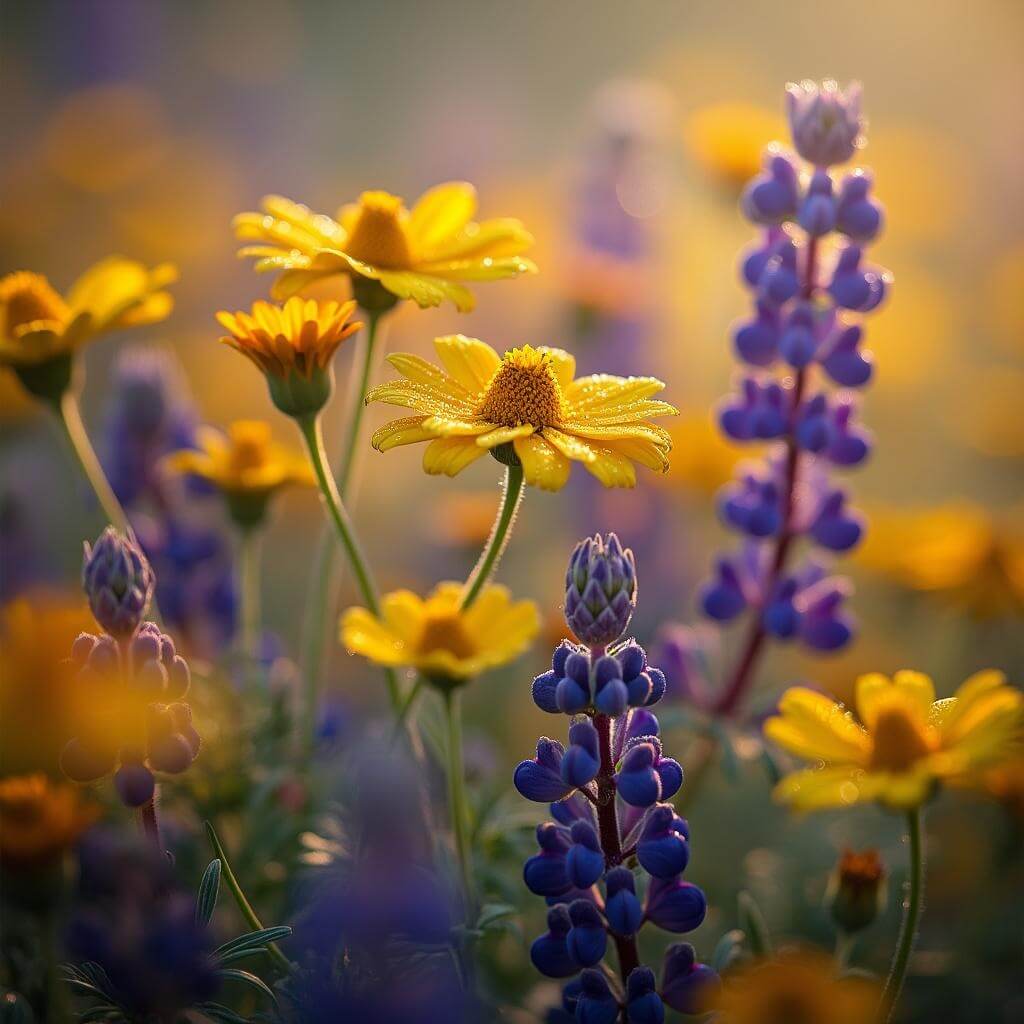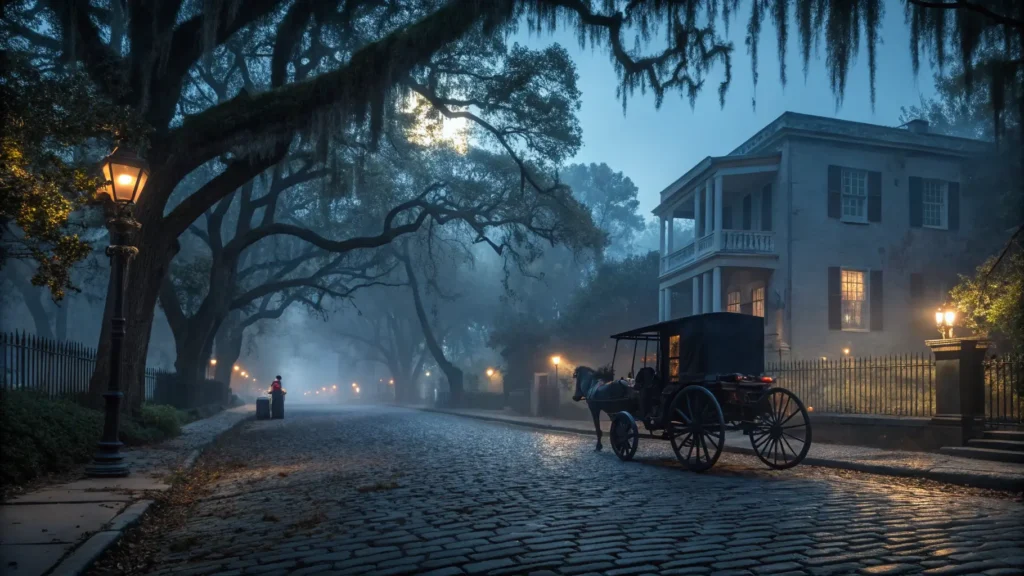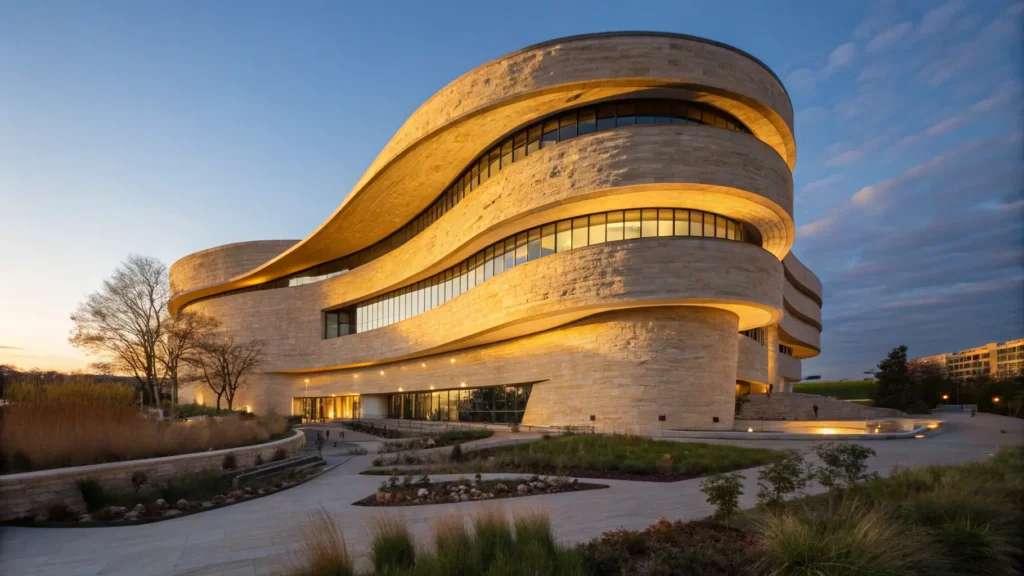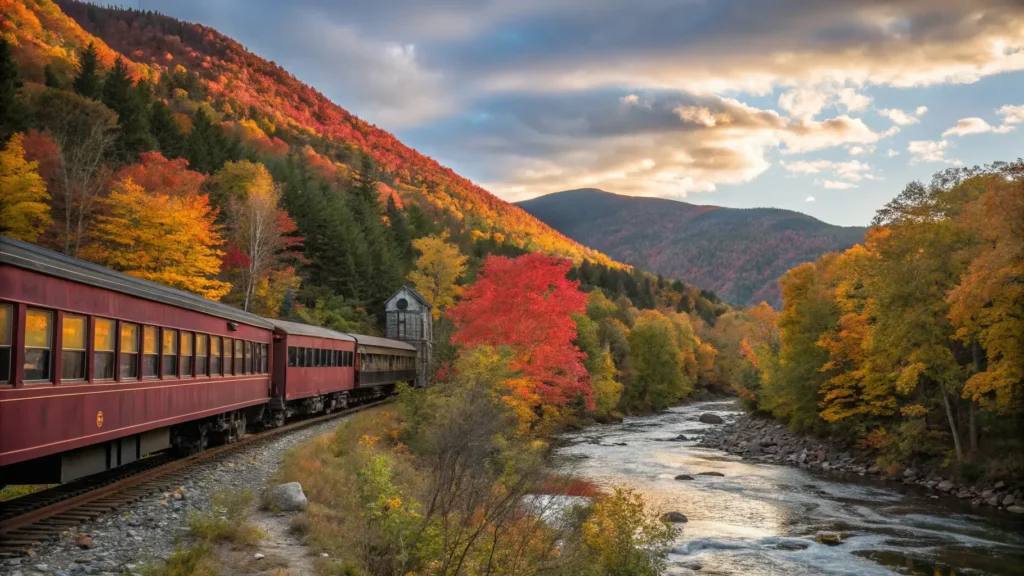Ever wondered what secrets lie hidden in the arid landscapes of Arizona? Buckle up for an extraordinary journey through one of the most fascinating botanical experiences in the Southwest.
The Desert Botanical Garden isn’t just another park – it’s a living museum of desert survival, sprawling across 140 lush acres in the heart of Phoenix. Nestled among the dramatic Papago Buttes, this botanical wonderland houses over 50,000 plant displays that tell an incredible story of adaptation and resilience.
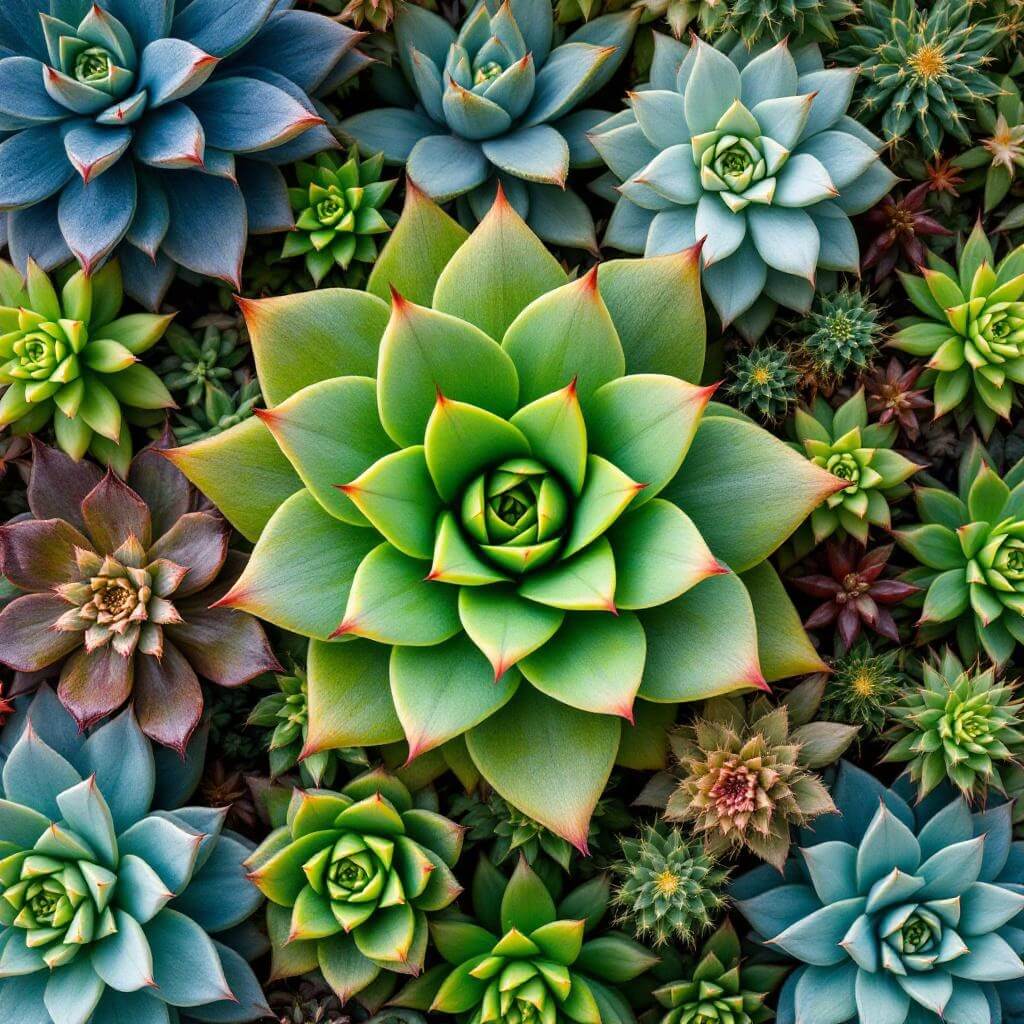
Why This Garden Will Blow Your Mind
As a botanical enthusiast who’s traveled across multiple desert regions, I can confidently say this garden is unlike anything you’ve ever experienced. My first visit was like stepping into a living, breathing ecosystem that challenges everything you thought you knew about desert life.
The garden’s mission goes far beyond simple plant collection. It’s a dedicated sanctuary for preservation, research, and education about desert ecosystems. Imagine walking through trails that showcase not just local Sonoran Desert flora, but plant species from arid regions worldwide.
Trails That Tell Stories
Let me break down the garden’s most fascinating trails:
- Desert Discovery Trail: Your global cacti and succulent crash course
- Sonoran Desert Nature Loop: Panoramic mountain views with local wildlife
- Center for Desert Living Trail: Water-wise gardening and edible plant secrets
- Desert Wildflower Trail: A buzzing paradise for pollinators
- Plants & People Trail: Indigenous plant uses across five distinct habitats
Pro tip: Plan for a 2-3 hour exploration. This isn’t a quick walk – it’s an immersive experience.
What Makes This Garden Unique
Most people think deserts are barren and boring. This garden proves them spectacularly wrong. Here, you’ll discover:
- Incredible plant adaptations for extreme conditions
- Intricate ecosystem interactions
- Cultural stories of indigenous plant usage
- Living examples of survival strategies
Who Should Visit?
Simple answer: Everyone.
Families will love the interactive exhibits. Photography enthusiasts will go crazy for the landscapes. Nature lovers will geek out over rare plant species. Even if you’re not typically a “plant person”, this garden will change your perspective.
Practical Visitor Insights
Best visiting times:
- Early morning for cooler temperatures
- Late afternoon for stunning lighting
- Spring for wildflower explosions
Essential packing list:
- Sunscreen
- Hat
- Water bottle
- Comfortable walking shoes
- Camera
The Desert Botanical Garden isn’t just a destination – it’s an education, an adventure, and a testament to the incredible resilience of life in one of Earth’s most challenging environments.
As the sun starts to cast long shadows across the cacti-studded landscape, you’ll realize this isn’t just a garden. It’s a living, breathing narrative of survival, adaptation, and the intricate beauty of desert ecosystems.
Want to know the hidden stories behind these remarkable plants? Keep exploring, because the desert has secrets waiting to be uncovered.
Related Reading:
Wildlife Encounters: More Than Just Plants
Ever wondered what animal life thrives in these harsh desert conditions?
The garden isn’t just a plant museum – it’s a living ecosystem teeming with fascinating wildlife. During one early morning visit, I watched a family of quail dart between cholla cacti, their precise movements a dance of survival.
Bird enthusiasts will be thrilled by the weekly naturalist-led bird-watching expeditions. Hummingbirds, in particular, are absolute rock stars here – tiny jewel-toned creatures that have mastered desert survival better than most humans.
Photography Paradise: Capturing Desert Magic
Pro photographers and Instagram enthusiasts, listen up.
The Desert Botanical Garden offers photographic opportunities that will make your social media followers stop scrolling. Sunset shots with Papago Buttes in the background? Pure magic. The interplay of light on cacti spines creates textures that look almost unreal.
Key photography hotspots:
- Sonoran Desert Nature Loop
- Center for Desert Living Trail
- Mountain backdrop viewpoints
- Wildflower sections during spring bloom
Beyond Plants: Cultural and Wellness Experiences
This isn’t just a botanical walk – it’s a holistic experience connecting nature, culture, and personal wellness.
The garden hosts unique events like:
- Sunset Sound Meditation
- Sonoran Sippin’ social evenings
- Flashlight Nights exploring nocturnal desert life
- Indigenous plant use workshops
Conservation and Community Impact
Here’s something most visitors don’t realize: every ticket supports critical ecological research and conservation efforts.
The Desert Botanical Garden isn’t just preserving plants – it’s protecting entire ecosystems. Their research helps understand climate adaptation, sustainable landscaping, and indigenous plant knowledge.
Practical Visitor Pro Tips
Insider advice from someone who’s explored every inch of this garden:
- Bring wide-brimmed hat
- Hydration is crucial
- Wear lightweight, breathable clothing
- Consider morning or late afternoon visits
- Check event calendar before arriving
- Comfortable walking shoes are non-negotiable
Seasonal Experiences: When to Visit
Each season offers a dramatically different experience:
- Spring: Wildflower explosion, mild temperatures
- Summer: Dramatic “Flashlight Nights”, evening cooling
- Fall: Migratory bird activity peaks
- Winter: Rare desert plant dormancy period
Final Thoughts: More Than a Garden
The Desert Botanical Garden transcends a simple walk through plants.
It’s a living classroom, a conservation sanctuary, and a testament to nature’s incredible resilience. Whether you’re a botanist, photographer, wellness seeker, or curious traveler, this garden offers something profound.
You’re not just observing a landscape – you’re witnessing a complex, interconnected ecosystem that survives and thrives where most life would surrender.
Explore the Stunning Desert Botanical Garden in Phoenix and begin your desert plant adventure.
Plan your route and trails with the Desert Garden Trails and Galleries Guide.

